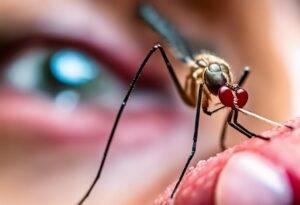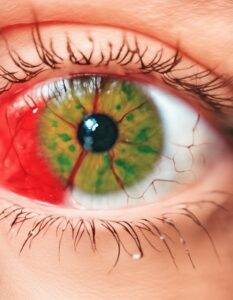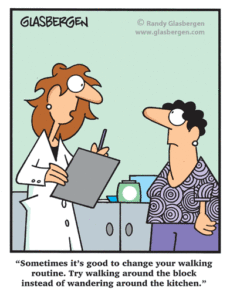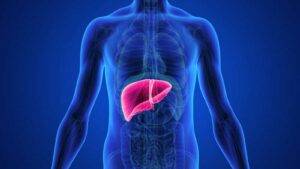Welcome to our comprehensive guide on allergies and the 40 best questions to ask an allergist! If you’re seeking answers and expert advice about allergies, you’ve come to the right place. Whether you’ve been recently diagnosed with allergies or want to gain a deeper understanding of the condition, this post will equip you with the knowledge you need to manage and overcome allergic reactions. From common questions like understanding allergy triggers to more specific inquiries about treatments and prevention, we’ve got you covered. Join us as we delve into the world of allergies and empower you to take control of your health.
Are You Allergy Savvy? Explore 40 Questions for Allergy Experts
1. What are the most common types of allergies and what are their symptoms?
According to the American Academy of Allergy, Asthma & Immunology (AAAAI), the most common types of allergies are:
– Allergic rhinitis (hay fever): Symptoms include sneezing, runny nose, congestion, itchy or watery eyes, and itching in the nose or throat.
– Food allergies: Symptoms can vary but commonly include hives, itching, swelling, abdominal pain, diarrhea, and in severe cases, anaphylaxis.
– Drug allergies: Symptoms may range from mild skin rashes to severe reactions like anaphylaxis. Common culprits include antibiotics, nonsteroidal anti-inflammatory drugs (NSAIDs), and certain seizure medications.
– Insect sting allergies: Symptoms can include large local reactions (swelling, redness, and pain), systemic reactions (hives, itching, swelling away from the sting site), and anaphylaxis.
– Allergic dermatitis (eczema): Symptoms often include itchy, red, and dry skin patches. It may be accompanied by oozing, crusting, or swelling.
– Allergic asthma: Symptoms include wheezing, coughing, shortness of breath, chest tightness, and underlying inflammation of the bronchial tubes.
Source: American Academy of Allergy, Asthma & Immunology (AAAAI) – https://www.aaaai.org/conditions-and-treatments/allergies
2. How can you differentiate between allergies and similar conditions such as cold or flu?
To differentiate between allergies and conditions like cold or flu, consider the following factors:
– Duration of symptoms: Allergy symptoms tend to last longer than those of cold or flu. Allergies can persist for weeks or months, while cold or flu symptoms usually resolve within a week or two.
– Seasonal patterns: Allergies often occur at specific times of the year when certain allergens, such as pollen, are prevalent. Cold and flu are more common during colder months.
– Temperature sensitivity: Allergies are not affected by changes in temperature. In contrast, cold weather can exacerbate cold or flu symptoms.
– Fever: Allergies do not typically cause fever, while cold or flu can be accompanied by fever, body aches, and fatigue.
– Nasal discharge: Allergies often result in clear, watery nasal discharge, while cold or flu may produce thicker, yellowish mucus.
It is always recommended to consult a healthcare professional for an accurate diagnosis.
Source: Mayo Clinic – https://www.mayoclinic.org/diseases-conditions/hay-fever/expert-answers/allergies/faq-20057945
Just a little heads up: some of the links on this site may be affiliate links, which means if you make a purchase through them, we might get a little kickback. But don’t worry, it won’t cost you a cent extra! Think of it as the universe secretly thanking us for helping you find a great deal. Your support keeps the good vibes flowing.
3. What steps can be taken to prevent allergic reactions in both children and adults?
To prevent allergic reactions in both children and adults, the following steps can be taken:
– Identify and avoid triggers: Determine the allergens causing the allergic reactions and take steps to minimize exposure. This may involve avoiding specific foods, maintaining a hypoallergenic environment, or avoiding known allergens like pollen or pet dander.
– Keep indoor air clean: Use air purifiers, clean regularly, reduce humidity, and avoid tobacco smoke to improve indoor air quality.
– Monitor pollen and mold levels: Stay informed about the levels of pollen and mold in your environment and plan outdoor activities accordingly.
– Practice proper hygiene: Wash hands regularly, especially before touching the face, to reduce the risk of allergen transfer.
– Use allergen-proof bedding: Encase mattresses, pillows, and box springs in dust mite-proof covers to reduce exposure.
– Be cautious when traveling: Research and plan ahead to avoid exposure to unfamiliar allergens during travel.
– Carry emergency medication: Individuals with known allergies should always carry their prescribed epinephrine auto-injector or other emergency medications.
Consulting with an allergist can provide personalized advice on allergy prevention.
Source: The American College of Allergy, Asthma & Immunology (ACAAI) – https://acaai.org/allergies/prevention
4. Which allergens pose the highest risk for severe reactions and how can they be avoided?
Several allergens are known to pose a high risk for severe allergic reactions, including:
– Peanuts and tree nuts: Avoid consuming or coming into contact with peanuts and tree nuts. Carefully read food labels, ask about ingredients in restaurants, and carry epinephrine auto-injectors if necessary.
– Shellfish and fish: Avoid consuming shellfish and fish and be cautious to prevent cross-contamination during food preparation. Again, read food labels, verify ingredients, and inform restaurant staff about any allergies.
– Insect stings: Take precautions to avoid insect stings, such as wearing closed-toe shoes outdoors, using insect repellents, and properly covering food and drinks.
– Medications: Inform healthcare providers about all allergies to medications, and always carry a list of specific medications to avoid.
– Latex: Identify products containing latex, such as gloves and balloons, and opt for latex-free alternatives.
Strict avoidance is the best strategy for preventing severe allergic reactions. In case of accidental exposure or anaphylaxis, immediate medical attention should be sought.
Source: American Academy of Allergy, Asthma & Immunology (AAAAI) – https://www.aaaai.org/conditions-and-treatments/library/at-a-glance/anaphylaxis
5. Are there any specific symptoms or behaviors that indicate an individual may have an allergy?
There are several symptoms and behaviors that may indicate an individual has an allergy:
– Frequent sneezing, itching, or a runny nose
– Persistent or recurrent coughing
– Wheezing or shortness of breath
– Skin rashes, hives, or itchiness
– Itchy or watery eyes
– Swelling of the lips, tongue, or throat
– Stomach cramps, nausea, vomiting, or diarrhea after eating certain foods
– Reactions after exposure to specific allergens, such as pollen, pet dander, or insect stings
– Previous diagnosis of an allergy or known family history of allergies
It’s important to note that these symptoms can also occur due to other conditions. Consulting an allergist or healthcare professional is essential for an accurate diagnosis.
Source: Mayo Clinic – https://www.mayoclinic.org/diseases-conditions/allergies/symptoms-causes/syc-20351497
6. What are the latest advancements in allergy testing methods and how effective are they?
The latest advancements in allergy testing methods include:
– Component-resolved diagnostics: This testing can identify specific allergenic components of substances like pollen, dust mites, or food, providing more precise information about an individual’s sensitivities.
– Molecular-based allergy diagnostics: These tests use DNA technology to detect specific genetic variants associated with allergies.
– Epicutaneous (patch) testing: This method involves applying allergens to the skin using patches to identify contact allergies, such as those caused by certain metals or chemicals.
– Basophil activation tests (BAT): BAT measures the activation of immune cells in response to allergens, helping to identify specific allergens responsible for allergic reactions.
The effectiveness of these tests varies depending on the specific method and individual characteristics. Component-resolved diagnostics and molecular-based allergy diagnostics have shown promise in improving diagnostic accuracy, especially in cases of multi-sensitized individuals.
Source: Journal of Allergy and Clinical Immunology – https://www.jacionline.org/article/S0091-6749(17)30609-7/fulltext
7. How can caregivers properly manage medications for individuals with allergies?
To properly manage medications for individuals with allergies, caregivers can follow these guidelines:
– Understand the prescribed medications: Learn about the medications, including their purpose, dosage, administration route, and potential side effects. Consult healthcare professionals if you have any doubts or concerns.
– Follow the prescribed treatment plan: Administer medications as directed by healthcare professionals and ensure adherence to the recommended schedule.
– Store medications properly: Store medications in a cool, dry place, and away from children or pets.
– Keep an updated list of medications: Maintain a detailed list of all medications the individual is currently taking, including dosage information, to share with healthcare providers during consultations or emergencies.
– Monitor medication effectiveness: Observe the individual’s response to medications and communicate any changes or concerns to healthcare professionals promptly.
– Be aware of potential drug interactions: Inform healthcare professionals about all other medications, supplements, or herbal remedies the individual is taking to avoid potential interactions.
Regular communication with healthcare professionals is essential for optimal medication management.
Source: Allergy & Asthma Network – https://www.allergyasthmanetwork.org/living-well-now/treatment-options/top-tips-for-managing-your-allergies/
8. What are the potential side effects of allergy medications and how can they be minimized?
Allergy medications can have potential side effects, and while they may vary depending on the specific medication, some common side effects include:
– Antihistamines: Drowsiness, dry mouth, dizziness, and impaired coordination.
– Nasal corticosteroids: Nasal dryness, irritation, or bleeding, and in rare cases, systemic effects such as adrenal suppression.
– Decongestants: Increased heart rate, elevated blood pressure, irritability, and sleep disturbances.
– Leukotriene inhibitors: Headache, stomach upset, mood changes, and, rarely, liver problems.
– Immunotherapy (allergy shots): Local reactions at the injection site, such as redness or swelling, and in rare cases, systemic reactions like anaphylaxis.
To minimize side effects, it is important to:
– Follow the prescribed dosage and administration instructions.
– Communicate any concerns or side effects to healthcare professionals.
– Use medications as a part of a comprehensive treatment plan, which may involve allergen avoidance strategies or other non-pharmacological approaches.
– Select medications with the guidance of healthcare professionals, considering individual preferences, cost, and potential drug interactions.
Source: The American Academy of Allergy, Asthma & Immunology (AAAAI) – https://www.aaaai.org/conditions-and-treatments/treatments/drug-guide
9. Are there any natural remedies or alternative treatments that can help alleviate allergy symptoms?
Natural remedies and alternative treatments that may help alleviate allergy symptoms include:
– Saline nasal irrigation: Rinsing the nasal passages with a saline solution can help reduce nasal congestion and remove allergens.
– Probiotics: Some studies suggest that certain probiotics may help reduce symptoms of allergic rhinitis, but more research is needed.
– Acupuncture: Limited scientific evidence suggests that acupuncture may provide symptom relief for allergic rhinitis, but further studies are required.
– Butterbur: Extracts from the butterbur plant have shown potential as an alternative treatment for hay fever but should be used with caution, as unrefined forms may contain carcinogenic compounds.
– Quercetin: Quercetin, a flavonoid found in fruits and vegetables, has anti-inflammatory properties and may help reduce allergy symptoms. However, more research is needed to confirm its effectiveness.
It is important to note that natural remedies may vary in effectiveness, and their safety and appropriate use should be discussed with healthcare professionals.
Source: National Center for Complementary and Integrative Health (NCCIH) – https://www.nccih.nih.gov/health/allergies
10. How do allergies affect different age groups (e.g., children, teenagers, adults, and seniors)?updated on the latest allergy research and best practices?
Allergies can affect different age groups in various ways:
– Children: Allergies are common in children and may manifest as eczema, food allergies, hay fever, or allergic asthma. Early identification, avoidance of triggers, and appropriate treatment can help manage allergies in children.
– Teenagers: Allergies can impact teenagers’ quality of life, including their academic performance, social activities, and emotional well-being. Peer pressure or lack of awareness may lead to non-compliance with treatment, reinforcing the importance of education and support.
– Adults: Many adults continue to experience allergies, including respiratory and food allergies. Allergies can influence work productivity, daily routine, and social interactions. Proper management, including medication, allergen avoidance, and regular check-ups, is crucial.
– Seniors: Allergies can become more challenging to diagnose in older adults due to other underlying health conditions. Allergies may coexist with age-related changes, making their symptoms more difficult to isolate. Medication management and periodic reassessment are essential to ensure proper treatment.
Keeping up with the latest allergy research, best practices, and guidelines by regularly consulting reputable sources such as medical journals, research papers, government websites, and established health organizations is crucial for accurate and up-to-date information.
Source: Asthma and Allergy Foundation of America (AAFA) – https://www.aafa.org/allergies-older-adults/
Just a little heads up: some of the links on this site may be affiliate links, which means if you make a purchase through them, we might get a little kickback. But don’t worry, it won’t cost you a cent extra! Think of it as the universe secretly thanking us for helping you find a great deal. Your support keeps the good vibes flowing.
11. What are the long-term implications of poorly managed allergies?
The long-term implications of poorly managed allergies can vary depending on the severity and type of allergies. If left unmanaged, allergies can lead to chronic symptoms such as nasal congestion, sneezing, itchy or watery eyes, and asthma. Additionally, poorly controlled allergies have been associated with increased risk of sinus infections, ear infections, and respiratory complications. Allergies can also impact one’s quality of life, leading to sleep disturbances, fatigue, difficulty focusing, and decreased productivity in work or school. It is important to effectively manage allergies to minimize these long-term implications.
Sources:
– Asthma and Allergy Foundation of America. (2020). Untreated Allergies Can Lead to Sinus and Ear Infections. https://www.aafa.org/allergies-treatment-sinus-ear-infections/
– American Academy of Allergy, Asthma & Immunology. (2020). The Connection Between Allergies and Asthma. https://www.aaaai.org/conditions-and-treatments/library/asthma-library/allergies-asthma
12. How can caregivers effectively communicate with healthcare professionals to ensure proper allergy management?
Caregivers can effectively communicate with healthcare professionals to ensure proper allergy management through open and honest dialogue. It is essential to provide detailed information about the individual’s symptoms, triggers, and the frequency and severity of allergic reactions. Caregivers should also bring any relevant medical records, such as previous allergy test results or treatment plans, to appointments. Asking questions and seeking clarification about the diagnosis, treatment options, and potential side effects of medications is crucial. It may also be helpful to maintain a written record of symptoms, triggers, and treatment outcomes to share with healthcare professionals.
Sources:
– National Institute on Aging. (n.d.). Talking With Your Doctor. https://www.nia.nih.gov/health/talking-your-doctor
– National Institute of Allergy and Infectious Diseases. (2021). Tips to Help You Talk With Your Doctor. https://www.niaid.nih.gov/diseases-conditions/tips-talk-your-doctor
13. Can allergies be outgrown and if so, what factors contribute to this?
Allergies can be outgrown, especially in children. The likelihood of outgrowing allergies depends on various factors, including the type of allergy. Some allergies, such as those to milk, eggs, wheat, and soy, are more likely to be outgrown compared to allergies to peanuts, tree nuts, fish, and shellfish. Other factors that can contribute to outgrowing allergies include the individual’s overall immune system development and exposure to allergens over time. Regular monitoring and testing by healthcare professionals can help determine if an allergy has been outgrown.
Sources:
– American Academy of Allergy, Asthma & Immunology. (2020). Outgrowing Allergies. https://www.aaaai.org/conditions-and-treatments/library/allergy-library/outgrowing-allergies
– National Institute of Allergy and Infectious Diseases. (2017). Guidelines for the Diagnosis and Management of Food Allergy in the United States. https://www.niaid.nih.gov/sites/default/files/FoodAllergyGuidelines.pdf
14. Are there any dietary changes or specific foods that can help reduce allergic reactions?
While specific dietary changes or foods cannot cure allergies, certain strategies and foods may help reduce allergic reactions. For individuals with food allergies, it is important to strictly avoid the allergen(s) identified through proper diagnosis. However, some studies suggest that consuming a diverse and balanced diet rich in fruits, vegetables, whole grains, and healthy fats may support overall immune and gut health, potentially reducing inflammation and promoting tolerance to allergens. Omega-3 fatty acids found in fish, flaxseeds, and walnuts may also have anti-inflammatory properties. However, it is important to consult with a healthcare professional or allergist before making any dietary changes.
Sources:
– Mayo Clinic. (2021). Tips to Prevent Allergy Symptoms. https://www.mayoclinic.org/diseases-conditions/hay-fever/in-depth/seasonal-allergies/art-20048343
– American College of Allergy, Asthma & Immunology. (2021). Diet and Nutrition. https://acaai.org/allergies/seasonal-allergies#diet-and-nutrition
15. What are the potential risks associated with food allergies in schools and public places?
Food allergies in schools and public places can pose potential risks, especially in children and individuals who may accidentally come into contact with allergens. Cross-contamination, accidental ingestion, or exposure to food allergens can lead to severe allergic reactions, including anaphylaxis, which is a life-threatening emergency. It is crucial for schools and public places to have proper protocols in place to prevent and handle allergic reactions. This may include allergen awareness training for staff, properly labeling foods, implementing allergen-free zones, and having access to emergency medications, such as epinephrine auto-injectors.
Sources:
– Centers for Disease Control and Prevention. (2021). Food Allergy Facts. https://www.cdc.gov/healthyschools/foodallergies/index.htm
– Food Allergy Research & Education. (n.d.). Managing Food Allergies in Schools. https://www.foodallergy.org/life-with-food-allergies/food-allergy-101/management-at-school
16. How can caregivers create an allergy-friendly environment at home and in public spaces?
Caregivers can create an allergy-friendly environment at home and in public spaces by taking certain precautions. At home, this may involve keeping the environment clean and free of allergens, such as dust mites, pet dander, and mold. Using air purifiers, encasing mattresses and pillows in allergen-proof covers, and frequently cleaning surfaces can help reduce allergen exposure. In public spaces, it is important to be vigilant about potential allergens, such as food-related allergens or environmental allergens like pollen. Communicating with others and raising awareness about allergies can also contribute to creating a supportive and safe environment for individuals with allergies.
Sources:
– Asthma and Allergy Foundation of America. (2016). Creating an Allergy-Friendly Home: A Room-By-Room Guide. https://www.aafa.org/creating-an-allergy-friendly-home/
– American Academy of Allergy, Asthma & Immunology. (n.d.). Creating an Allergy-Friendly Environment. https://www.aaaai.org/conditions-and-treatments/library/allergy-library/creating-an-allergy-friendly-environment
17. What should caregivers do in case of an allergic reaction emergency?
In case of an allergic reaction emergency, caregivers should be prepared and take immediate action. If the individual has a known severe allergy, they should carry their prescribed epinephrine auto-injector at all times. In the event of an allergic reaction, the caregiver should administer epinephrine promptly if necessary, as it is the first-line treatment for anaphylaxis. It is important to call emergency services (911 or local emergency number) immediately after administering epinephrine. The individual should be transported to the nearest emergency department for further evaluation and treatment. Caregivers should also inform healthcare professionals about the allergic reaction and follow any post-reaction instructions provided.
Sources:
– American College of Allergy, Asthma & Immunology. (2021). Anaphylaxis. https://acaai.org/allergies/anaphylaxis
– Food Allergy Research & Education. (n.d.). Managing Food Allergies: What to Do in an Emergency. https://www.foodallergy.org/life-with-food-allergies/food-allergy-101/managing-food-allergies-what-to-do-in-an-emergency
18. Are there any specific allergy prevention strategies for individuals with compromised immune systems?
Individuals with compromised immune systems may have a higher risk of severe allergic reactions, and specific allergy prevention strategies may be recommended. It is essential for individuals with compromised immune systems to work closely with their healthcare professionals or immunologists to minimize the risk of exposure to allergens. This may involve avoiding known allergens, following strict medication regimens as prescribed, and getting vaccinated against preventable diseases that can exacerbate allergies or compromise the immune system further. Proactive management and communication with healthcare professionals are critical in these cases.
Sources:
– American Academy of Allergy, Asthma & Immunology. (2020). Allergies and the Immune System. https://www.aaaai.org/conditions-and-treatments/library/allergy-library/allergies-and-the-immune-system
– National Institute of Allergy and Infectious Diseases. (2019). Guidelines for the Prevention and Treatment of Opportunistic Infections in HIV-Infected Adults and Adolescents. https://clinicalinfo.hiv.gov/en/guidelines/adult-and-adolescent-opportunistic-infection/prevention-opportunistic-infections
19. What precautions should be taken during outdoor activities to minimize exposure to allergens?
To minimize exposure to allergens during outdoor activities, several precautions can be taken. Checking local pollen and mold counts can help determine if allergen levels are particularly high in the area. If allergen levels are high, it may be advisable to limit outdoor activities, especially during peak pollen or mold seasons. Wearing appropriate protective clothing like long sleeves, long pants, and hats can help reduce direct contact with allergens. It is also beneficial to shower and change clothes after spending time outdoors to remove any allergens lingering on the body or clothing. Additionally, using a nasal rinse or saline spray after outdoor activities can help alleviate nasal symptoms.
Sources:
– American Academy of Allergy, Asthma & Immunology. (2021). Outdoor Allergens: Tips to Remember. https://www.aaaai.org/conditions-and-treatments/library/allergy-library/outdoor-allergens
– Asthma and Allergy Foundation of America. (2021). Tips to Uproot Outdoor Allergies. https://www.aafa.org/outdoor-allergies/
20. How do seasonal allergies differ from other types of allergies, and what are the best treatment options?
Seasonal allergies, also known as hay fever or allergic rhinitis, differ from other types of allergies primarily in their trigger and timing. Seasonal allergies are triggered by airborne allergens, such as pollen from trees, grasses, and weeds, and their symptoms occur seasonally when the specific allergen is prevalent. Common symptoms of seasonal allergies include sneezing, runny or stuffy nose, itchy or watery eyes, and fatigue. The best treatment options for seasonal allergies may include allergen avoidance, over-the-counter or prescription antihistamines, nasal corticosteroids, decongestants, and immunotherapy (allergy shots or sublingual tablets). It is important to consult with a healthcare professional or allergist for proper diagnosis and tailored treatment.
Sources:
– American College of Allergy, Asthma & Immunology. (2021). Seasonal Allergies. https://acaai.org/allergies/types/hay-fever-rhinitis
– Mayo Clinic. (2021). Hay Fever (Allergic Rhinitis): Treatment & Drugs. https://www.mayoclinic.org/diseases-conditions/hay-fever/diagnosis-treatment/drc-20373045
Just a little heads up: some of the links on this site may be affiliate links, which means if you make a purchase through them, we might get a little kickback. But don’t worry, it won’t cost you a cent extra! Think of it as the universe secretly thanking us for helping you find a great deal. Your support keeps the good vibes flowing.
21. Can allergies be genetic, and if so, how can it impact caregiving for multiple family members?
Allergies can have a genetic component, meaning that they can be passed down through generations. If one or both parents have allergies, their children are more likely to develop allergies as well. This is known as allergic predisposition or atopy. The impact of genetic allergies on caregiving for multiple family members is that it may require more attention and effort to manage and prevent allergic reactions in the household. It is important for caregivers to educate themselves about their family members’ allergies, identify triggers, and take necessary precautions to minimize exposure to allergens.
Source:
– American College of Allergy, Asthma & Immunology. (2020). Allergies & Atopy. Retrieved from https://acaai.org/allergies/allergy-types/allergies-atopy
22. What are the common misconceptions or myths about allergies that caregivers should be aware of?
There are several common misconceptions or myths about allergies that caregivers should be aware of. These include:
– Allergies are not serious: Allergies can range from mild to life-threatening, and anaphylaxis can be fatal if left untreated.
– Allergies can be outgrown: While some children may outgrow certain allergies, others may carry them into adulthood.
– Allergies are only seasonal: Allergies can be triggered by various allergens, including pollen, dust mites, pet dander, and certain foods, and can occur throughout the year.
– Allergies are caused by a weak immune system: Allergies actually result from an overactive immune response to harmless substances.
– Allergy tests are always accurate: Allergy tests can provide useful information, but they are not always100% accurate and should be interpreted in conjunction with a person’s medical history and symptoms.
Source:
– American Academy of Allergy, Asthma & Immunology. (n.d.). Allergy Myths. Retrieved from https://www.aaaai.org/conditions-and-treatments/library/at-a-glance/allergy-myths
23. How can allergies impact mental health and quality of life for individuals and their caregivers?
Allergies can have a significant impact on mental health and quality of life for individuals and their caregivers. Allergic symptoms such as nasal congestion, itchy eyes, and skin reactions can be uncomfortable and bothersome, leading to sleep disturbances, difficulty concentrating, and irritability. Allergies can also limit participation in social activities and negatively affect school or work productivity. Caregivers may experience stress and anxiety related to managing their loved one’s allergies, including the fear of a severe allergic reaction. It is important for individuals and caregivers to seek support, manage stress, and address any mental health concerns associated with allergies.
Source:
– Gupta, R. S., & Gupta, P. (2007). Caregiver Burden in Allergic Rhinitis. Immunology and Allergy Clinics of North America,27(2),311-323. doi:10.1016/j.iac.2007.03.003
24. Are there any environmental factors that contribute to the rise in allergies?
Several environmental factors have been linked to the rise in allergies. These include:
– Indoor air pollution: Exposure to allergens such as dust mites, pet dander, mold, and tobacco smoke indoors can trigger or exacerbate allergies.
– Changes in diet: Dietary factors, such as the Western diet high in processed foods and low in fiber, may contribute to the development of allergies.
– Hygiene hypothesis: Some researchers suggest that reduced exposure to microbial organisms in early childhood, due to improved sanitation practices, may increase the risk of allergies.
– Climate change: Rising temperatures and increased levels of carbon dioxide can lead to longer pollen seasons, increased pollen production, and heightened allergenicity of pollen.
Source:
– Peters, R., & Pearce, N. (2018). Environmental exposure and allergy in young people. Paediatric Respiratory Reviews,28,32-38. doi:10.1016/j.prrv.2017.02.001
25. How can caregivers effectively educate relatives, friends, and teachers about an individual’s allergies?
To effectively educate relatives, friends, and teachers about an individual’s allergies, caregivers can take the following steps:
– Clearly communicate the specific allergens and their potential consequences.
– Provide information on how to recognize allergic symptoms and signs of a severe allergic reaction.
– Discuss necessary precautions to prevent exposure to allergens, such as avoiding certain foods, using allergen-free products, and implementing strategies to minimize allergen exposure in the environment.
– Teach individuals about the proper use of emergency medication, such as epinephrine auto-injectors.
– Encourage open communication, answer questions, and address concerns.
– Provide written materials or resources for further education.
Source:
– Food Allergy Research & Education. (n.d.). Tips for Educating Others. Retrieved from https://www.foodallergy.org/life-with-food-allergies/teens/tips-for-educating-others
26. What are the potential cross-reactivities between different allergens and how should caregivers navigate them?
Cross-reactivity between different allergens can occur when proteins in allergens have similar structures, leading to an allergic reaction to both allergens. For example, those allergic to birch pollen may experience a cross-reaction to certain fruits like apples or peaches due to shared allergenic proteins. Caregivers can navigate cross-reactivities by:
– Identifying potential cross-reactive allergens based on a healthcare provider’s guidance and accurate diagnosis.
– Consulting with healthcare professionals or allergists for comprehensive information on cross-reactivities.
– Educating individuals and caregivers about potential cross-reactivities, enabling avoidance strategies, and being aware of the signs of cross-reactive allergies.
Source:
– Brożek, J. L., Bousquet, J., Baena-Cagnani, C. E., Bonini, S., Canonica, G. W., Casale, T. B., . . . Dalal, A. A. (2010). Allergic Rhinitis and Its Impact on Asthma (ARIA) Guidelines-2010 Revision. Journal of Allergy and Clinical Immunology,126(3),466-476. doi:10.1016/j.jaci.2010.06.047
27. Can allergies contribute to or exacerbate other medical conditions, and if so, how can they be managed?
Allergies can contribute to or exacerbate other medical conditions, including asthma, eczema, sinusitis, and allergic rhinitis. For example, allergic rhinitis can worsen asthma symptoms and lead to increased asthma attacks. Allergies can be managed by:
– Avoiding known allergens and triggers.
– Taking medication as prescribed by a healthcare provider, such as antihistamines, nasal sprays, or allergy shots.
– Implementing environmental control measures, such as using air purifiers, maintaining a clean home, and minimizing exposure to allergens.
– Developing an individualized allergy management plan with a healthcare provider.
– Seeking regular follow-up and conducting tests to assess and monitor the impact of allergies on other medical conditions.
Source:
– American Academy of Allergy, Asthma & Immunology. (n.d.). Allergies and Comorbidities. Retrieved from https://www.aaaai.org/conditions-and-treatments/allergies/allergy-and-comorbidities
28. How can caregivers differentiate between an allergic reaction and an adverse medication reaction?
Differentiating between an allergic reaction and an adverse medication reaction can be challenging. Allergic reactions involve the immune system and can range from mild to severe symptoms, such as hives, itching, swelling, difficulty breathing, or anaphylaxis. Adverse medication reactions, on the other hand, can occur even in the absence of an immune response and may manifest as non-allergic side effects like nausea, dizziness, or rash. It is crucial for caregivers to consult healthcare professionals or allergists to accurately assess the symptoms and determine the cause. The healthcare provider can conduct relevant tests and review the individual’s medical history to make a proper diagnosis.
Source:
– American Academy of Allergy, Asthma & Immunology. (n.d.). Allergic and Adverse Reactions to Food, Treatments and Insect Stings. Retrieved from https://www.aaaai.org/conditions-and-treatments/allergies/drug-allergies
Just a little heads up: some of the links on this site may be affiliate links, which means if you make a purchase through them, we might get a little kickback. But don’t worry, it won’t cost you a cent extra! Think of it as the universe secretly thanking us for helping you find a great deal. Your support keeps the good vibes flowing.
29. Are there any promising ongoing allergy research or clinical trials that caregivers should be aware of?
There are several ongoing allergy research studies and clinical trials that caregivers should be aware of. These studies aim to develop new treatments, improve diagnostic tools, and enhance understanding of allergies. Examples of current research include investigations into novel immunotherapy approaches, the role of the gut microbiome in allergy development, and the impact of genetic factors on allergic diseases. To stay informed about promising ongoing allergy research, caregivers can regularly check reputable sources such as government health agencies, medical journals, and the websites of major allergy and immunology organizations.
Source:
– National Institute of Allergy and Infectious Diseases. (n.d.). Research on Allergic Diseases: Allergic Rhinitis . Retrieved from https://www.niaid.nih.gov/research/allergic-rhinitis
30. What are the best practices for managing pet allergies in households with pets?
Managing pet allergies in households with pets can be challenging, but the following best practices can help:
– Minimize exposure to pet allergens by keeping pets out of bedrooms and off furniture, using allergen-impermeable bedding and covers, and regularly vacuuming and dusting.
– Consider using high-efficiency particulate air (HEPA) filters in the home to reduce pet allergen levels.
– Frequent bathing and grooming of pets may help reduce allergen levels on their fur.
– Establish pet-free zones in the house, such as specific rooms or areas, to provide a “safe” space for individuals with allergies.
– Consult with an allergist to discuss additional management options, such as medications or immunotherapy, based on the individual’s specific needs and severity of symptoms.
Source:
– American College of Allergy, Asthma & Immunology. (2019). Pet Allergy. Retrieved from https://acaai.org/allergies/types/pet-allergies
31. How can individuals with multiple allergies best identify their triggers and manage them effectively?
Individuals with multiple allergies can best identify their triggers and manage them effectively by following these steps:
1. Keep a detailed record: Maintain a diary to track symptoms, activities, and potential triggers, such as food, pollen, or certain environments. This can help identify patterns and specific allergens.
2. Consult with an allergist: An allergist can perform tests, such as skin prick tests or blood tests, to identify specific allergens. They can also provide guidance on managing allergies and avoiding triggers.
3. Avoid allergens: Once triggers are identified, it is important to minimize exposure. This may involve adjusting daily routines, such as avoiding specific foods or changing the living environment to reduce exposure to dust mites or pet dander.
4. Implement preventive measures: Taking proactive steps like using allergen-proof bedding, installing air filters, and regularly cleaning can help minimize allergen exposure.
5. Carry emergency medication: Individuals with multiple allergies should always carry necessary medications, such as antihistamines or epinephrine auto-injectors, in case of an allergic reaction.
6. Consider allergen immunotherapy: Allergen immunotherapy, such as allergy shots or sublingual tablets, can help desensitize individuals to specific allergens and reduce symptoms over time. Consult with an allergist to determine if this treatment is suitable.
Remember, individualized guidance from a healthcare professional is crucial for managing multiple allergies effectively.
(Source: American Academy of Allergy, Asthma & Immunology – “Managing Your Allergies”)
32. Are there any preventive measures that expecting parents can take to reduce the risk of allergies in their children?
Expecting parents can take several preventive measures to reduce the risk of allergies in their children:
1. Breastfeed: Exclusive breastfeeding for at least six months, if possible, can help reduce the risk of allergic diseases, including eczema, food allergies, and asthma.
2. Introduce solids at the right time: Introducing solid foods too early (before four to six months of age) or too late (after six months of age) may increase the risk of allergies. Follow recommended guidelines from healthcare professionals regarding the introduction of allergenic foods.
3. Avoid smoking: Both parents should avoid smoking during pregnancy and after the child is born, as exposure to secondhand smoke increases the risk of allergies and respiratory conditions.
4. Choose a diverse diet: A varied diet during pregnancy and breastfeeding can help expose the child to a wider range of potential allergens, potentially reducing the risk of developing allergies later in life.
5. Maintain a clean environment: While it’s important for infants to have some level of exposure to common allergens, keeping a clean environment can help reduce excessive exposure, especially to dust mites and pet dander.
6. Consult with an allergist: If there is a family history of allergies, consulting with an allergist or pediatrician early on can provide additional guidance and personalized recommendations.
Remember that allergies have a multifactorial nature, and these preventive measures may not guarantee complete allergy prevention. However, they can help reduce the risk in susceptible individuals.
(Source: American Academy of Pediatrics – “Prevention of Allergies and Asthma in Children”)
33. How can caregivers effectively advocate for individuals with allergies in public settings, such as schools or workplaces?
Caregivers can effectively advocate for individuals with allergies in public settings by following these steps:
1. Education and communication: Educate the relevant staff and individuals about the specific allergies and their potential severity. Provide comprehensive information on the necessary precautions, symptoms, and emergency actions.
2. Develop an action plan: Work with healthcare professionals to create an individualized action plan that includes emergency contact information, a list of allergens, symptoms, and appropriate responses. Share this plan with relevant individuals, such as school staff, employers, and colleagues.
3. Collaborate with school or workplace: Establish open lines of communication with schools or workplaces to ensure they understand the importance of allergy management. Request regular meetings to review and update the action plan, discuss concerns, and address any necessary accommodations.
4. Allergen avoidance measures: Advocate for allergen avoidance measures in public settings, such as designated allergen-free areas, allergen labeling, and regular cleaning to minimize exposure.
5. Training and awareness: Encourage staff, teachers, and colleagues to undergo appropriate training, such as CPR and first aid. This ensures they are prepared to respond to allergic reactions promptly and appropriately.
6. Encourage self-advocacy: Teach individuals with allergies to advocate for themselves by communicating their needs, carrying necessary medications, and knowing how to respond to an allergic reaction.
Remember, a collaborative approach with schools, workplaces, and healthcare professionals is key to effective advocacy for individuals with allergies in public settings.
(Source: Food Allergy Research & Education – “School-Wide Food Allergy Management”)
34. What precautions should be taken when traveling with someone who has severe allergies?
When traveling with someone who has severe allergies, it is important to take the following precautions:
1. Carry necessary medications: Ensure that the individual has an adequate supply of allergy medications, including antihistamines and epinephrine auto-injectors, and that they are easily accessible during the journey.
2. Research food options: Before traveling, research restaurants and food options that prioritize allergen awareness and accommodation. Travel with safe snacks and consider carrying allergy translation cards in the language of the destination.
3. Notify airlines and accommodations: Inform the airline and accommodation providers (hotels, resorts, etc.) in advance about the specific allergies. Many airlines can accommodate special dietary needs, and some hotels offer allergen-free rooms.
4. Safe food preparation: If self-catering, ensure all cooking utensils and surfaces are thoroughly cleaned to avoid cross-contamination. Use separate dishes and utensils for allergen-free meals if necessary.
5. Plan for emergencies: Research the location’s medical facilities and emergency contact numbers. Carry a copy of the individual’s action plan and ensure all travel companions are familiar with emergency procedures.
6. Be prepared for unexpected exposure: Always carry antihistamines and an epinephrine auto-injector in case of accidental exposure. Familiarize yourself with the available medical services at your travel destination.
Remember, consulting with an allergist or healthcare provider before traveling is essential, as they can provide individualized guidance based on the specific allergies and travel plans.
(Source: American College of Allergy, Asthma & Immunology – “Traveling with Allergies & Asthma”)
35. What is anaphylaxis and what are the signs and symptoms caregivers should be familiar with?
Anaphylaxis is a severe and potentially life-threatening allergic reaction that requires immediate medical attention. Caregivers should be familiar with the following signs and symptoms:
1. Skin reactions: Itchy rash, hives, swelling of the face, lips, tongue, or throat.
2. Respiratory symptoms: Difficulty breathing, wheezing, shortness of breath, coughing, tightness in the chest, or throat swelling.
3. Cardiovascular symptoms: Rapid or weak pulse, low blood pressure, lightheadedness, dizziness, or fainting.
4. Gastrointestinal symptoms: Nausea, vomiting, abdominal pain, or diarrhea.
5. General symptoms: A sense of impending doom, anxiety, confusion, or a metallic taste in the mouth.
6. Other symptoms: Itchy, watery, or swollen eyes, runny or congested nose, or feeling of warmth or flushing.
Prompt recognition of anaphylaxis is crucial, and caregivers should be prepared to administer the individual’s prescribed epinephrine auto-injector and seek immediate emergency medical attention. Even if symptoms resolve or improve after using epinephrine, it is essential to seek medical evaluation to monitor for potential delayed or recurrent symptoms.
(Source: American Academy of Allergy, Asthma & Immunology – “Anaphylaxis”)
36. Are there any natural ways to strengthen the immune system to potentially reduce allergy symptoms?
Evidence suggests that certain lifestyle choices and habits can support a healthy immune system and potentially reduce allergy symptoms. Here are some natural ways to strengthen the immune system:
– Eating a well-balanced diet: Consuming a variety of fruits, vegetables, whole grains, and lean proteins can provide essential nutrients that support immune function.
– Regular exercise: Engaging in moderate exercise, such as brisk walking or cycling, can help enhance the immune system.
– Sufficient sleep: Prioritizing quality sleep is crucial for maintaining a strong immune system. Aim for7-9 hours of sleep per night.
– Stress management: Chronic stress can weaken the immune system, so practicing stress-reducing techniques like meditation, deep breathing, or yoga can be beneficial.
– Exposure to nature: Spending time outdoors in green spaces may have positive effects on the immune system.
– Probiotics: Certain probiotics, found in fermented foods like yogurt or sauerkraut, may help regulate the immune system, reducing allergy symptoms in some individuals.
It’s essential to note that while these natural methods may support overall immune health, they may not directly prevent or treat specific allergies. Consulting with a healthcare professional is recommended for personalized advice.
While there is no definitive way to “strengthen” the immune system to prevent allergies, maintaining a healthy lifestyle can support immune function and potentially reduce allergy symptoms:
1. Balanced diet: Consume a balanced diet rich in fruits, vegetables, whole grains, lean proteins, and healthy fats. This provides essential nutrients, antioxidants, and anti-inflammatory compounds that support the immune system.
2. Regular exercise: Engage in moderate aerobic exercise, such as brisk walking or cycling, to support overall health and immune function. Consult with a healthcare provider before starting a new exercise regimen, especially for individuals with severe allergies or underlying health conditions.
3. Adequate sleep: Prioritize good quality sleep. Sleep deprivation can impact immune function and potentially worsen allergy symptoms.
4. Stress management: Chronic stress can affect the immune system. Engage in stress-reducing activities such as meditation, deep breathing exercises, or hobbies that promote relaxation.
5. Avoid triggers: Minimize exposure to known allergens such as pollen, dust mites, pet dander, or certain foods. This can help reduce the allergic burden on the immune system.
6. Consult with a healthcare professional: Discuss individual circumstances with a healthcare professional, such as an allergist or immunologist, to determine the most appropriate strategies for managing allergies based on overall health and specific allergies.
It’s important to note that natural approaches alone may not be sufficient for severe allergic reactions, and medical interventions, such as prescribed medications or immunotherapy, may be necessary for effective symptom management.
(Source: Asthma and Allergy Foundation of America – “Prevention and Risk Reduction Strategies for Allergies and Asthma”)
37. How can caregivers ensure the proper storage and handling of allergy medications and devices (e.g., epinephrine auto-injector)?
Proper storage and handling of allergy medications and devices are crucial for maintaining their effectiveness and safety. Here are some guidelines for caregivers to follow:
– Read the instructions: Carefully read and follow the storage and handling instructions provided by the medication/device manufacturer.
– Temperature control: Store medications as indicated on the packaging. Some medications need to be refrigerated, while others should be kept at room temperature. Avoid exposing medications to extreme temperatures or direct sunlight.
– Keep out of reach: Store medications and devices in a secure location out of reach of children or pets.
– Check expiration dates: Regularly check the expiration dates of medications and replace them as needed. Expired medications may lose their effectiveness or become potentially harmful.
– Travel considerations: If traveling, ensure that medications and devices are properly packed and stored. Follow transportation guidelines to ensure their safety and efficacy during transit.
– Proper disposal: Dispose of unused or expired medications properly. Check with local pharmacies or healthcare facilities for disposal options.
Remember, it is important to consult healthcare professionals or pharmacists for specific instructions and recommendations regarding storage and handling of allergy medications and devices.
Caregivers can ensure the proper storage and handling of allergy medications and devices, such as epinephrine auto-injectors, by following these guidelines:
1. Read the instructions: Carefully read and follow the instructions provided by the medication manufacturer and healthcare professionals regarding storage and handling.
2. Store medications at the correct temperature: Follow temperature guidelines provided with the specific medication. Most epinephrine auto-injectors should be stored at room temperature, between 15-30°C (59-86°F). Avoid extreme heat or cold.
3. Carry medications with you: When traveling or outside the home, ensure that necessary medications, including epinephrine auto-injectors, are easily accessible and stored in appropriate carrying cases or bags.
4. Check expiration dates: Regularly check the expiration dates of medications and replace them before they expire. Expired medications may not be effective and should be disposed of properly.
5. Educate others: Inform teachers, school staff, caregivers, and close contacts about the location of allergy medications and how to use them in case of an emergency.
6. Regularly inspect auto-injectors: Check the appearance, color, and clarity of the epinephrine solution through the viewing window. If there are any signs of discoloration or particles, replace the auto-injector and consult a pharmacist or healthcare professional.
Remember to consult with a healthcare professional for specific instructions on the proper storage and handling of allergy medications and devices.
(Source: Food Allergy Research & Education – “Managing Food Allergies: What You Need to Know”)
38. What are the potential risks and benefits of immunotherapy (allergy shots) for long-term allergy management?
Immunotherapy, often administered in the form of allergy shots, is a long-term treatment option for managing allergies. Here are some potential risks and benefits of immunotherapy:
Benefits:
– Allergen desensitization: Immunotherapy gradually exposes the body to increasing amounts of specific allergens, helping the immune system build tolerance over time. This can lead to reduced allergy symptoms and a decreased need for medications.
– Long-term results: Unlike medications that provide temporary relief, immunotherapy offers the potential for long-lasting effects even after treatment completion.
– Treatment for multiple allergies: Immunotherapy can be effective in treating multiple allergies simultaneously, making it a comprehensive treatment option.
Risks:
– Allergic reactions: While rare, allergic reactions to immunotherapy can occur. These reactions can range from mild (e.g., itching, redness) to severe (e.g., anaphylaxis). It is important to receive immunotherapy under medical supervision for prompt management of any potential reactions.
– Time commitment: Immunotherapy typically requires regular clinic visits over several months or years to administer the injections. This may pose a challenge for individuals with busy schedules or limited access to healthcare facilities.
– Cost: The cost of immunotherapy, including the allergen extracts, visits, and administration fees, may be a consideration for some individuals, as it is not always fully covered by insurance.
It is important to discuss the potential risks and benefits of immunotherapy with a healthcare professional to determine if it is a suitable option for managing specific allergies.
Immunotherapy, commonly known as allergy shots, can be an effective long-term allergy management option. However, it is important to consider the potential risks and benefits:
Potential benefits of immunotherapy:
1. Reduced symptoms: Immunotherapy can reduce allergy symptoms, such as sneezing, itching, and congestion, by desensitizing the immune system to specific allergens.
2. Long-lasting effects: Immunotherapy can provide long-lasting symptom relief even after the treatment is completed, especially for allergic rhinitis (hay fever) and insect sting allergies.
3. Prevention of progression: Immunotherapy may prevent the progression of allergic rhinitis to asthma in some individuals.
4. Decreased medication use: Successful immunotherapy can lead to a significant reduction in the need for allergy medications and rescue inhalers.
5. Convenience: Once maintenance doses are reached, immunotherapy often requires fewer visits to healthcare providers compared to the initial treatment phase.
Potential risks and considerations of immunotherapy:
1. Allergic reactions: While rare, allergic reactions to allergy shots can occur. These reactions can range from mild symptoms to potentially life-threatening anaphylaxis. For this reason, immunotherapy should be administered under the supervision of a healthcare professional.
2. Time commitment: Immunotherapy requires a significant time commitment, as it usually involves regular office visits initially and maintenance treatments for three to five years or longer in some cases.
3. Cost: Immunotherapy can be costly, considering the extended treatment duration and frequent healthcare provider visits. It is important to discuss insurance coverage and potential out-of-pocket expenses with the healthcare provider.
4. Discomfort: Allergy shots involve the administration of small amounts of allergens through injections, which can cause discomfort, redness, swelling, or itching at the injection site.
5. Limited efficacy for certain allergies: While immunotherapy can be highly effective for certain allergens, it may have limited efficacy for allergies to foods and medications.
It is crucial for individuals considering immunotherapy to consult with an allergist or immunologist to evaluate their specific allergies, medical history, and potential risks and benefits.
(Source: American Academy of Allergy, Asthma & Immunology – “What is Allergen Immunotherapy?“)
Just a little heads up: some of the links on this site may be affiliate links, which means if you make a purchase through them, we might get a little kickback. But don’t worry, it won’t cost you a cent extra! Think of it as the universe secretly thanking us for helping you find a great deal. Your support keeps the good vibes flowing.
39. Are there any emerging technologies or apps that can assist caregivers in managing allergies more effectively?
Yes, there are emerging technologies and apps available that can assist caregivers in managing allergies more effectively. These technologies aim to provide support in various aspects of allergy management. Here are a few examples:
– Allergy tracking apps: Several mobile applications allow users to track and monitor allergy symptoms, medication usage, and triggers. These apps can help caregivers and individuals better understand allergy patterns and provide valuable information to healthcare professionals.
– Air quality monitors: Some advanced air quality monitors can detect allergens indoors, such as dust mites, pollen, or mold. These devices provide real-time information about indoor air quality, allowing caregivers to take appropriate actions for allergen reduction.
– Wearable devices: Certain wearable devices, such as smartwatches or fitness trackers, offer features like tracking pollen levels, providing alerts about high allergen exposure, and monitoring vital signs that may be relevant to allergy management.
– Telemedicine platforms: Telemedicine platforms enable remote consultations with healthcare professionals, allowing caregivers to discuss allergy management strategies, receive prescription refills, and seek guidance without the need for in-person visits.
– Online resources and forums: Various websites and online forums dedicated to allergies provide information, resources, and support networks for caregivers. These platforms often include reputable information from healthcare professionals and individuals with similar experiences.
When considering the use of emerging technologies or apps, it is essential to evaluate their reliability, security, and user reviews. Consulting with healthcare professionals before relying solely on these technologies is recommended for personalized guidance.
There are several emerging technologies and apps that can assist caregivers in managing allergies more effectively. Some examples include:
1. Allergy tracking apps: These apps allow caregivers to track symptoms, record potential triggers, monitor medication usage, and even share the data with healthcare professionals. Examples include AllergyEats, Pollen Wise, and Allergy Tracker.
2. Allergen detection devices: Technology such as portable allergen detectors can help identify the presence of allergens in the environment, making it easier for caregivers to take necessary precautions. These devices use sensors to detect allergens like pollen, dust mites, mold spores, and pet dander.
3. Virtual doctor visits: With the advancements in telemedicine, caregivers can now consult with healthcare professionals remotely. Virtual doctor visits can provide convenience and timely access to medical advice, especially in situations where visiting a doctor in person may not be feasible.
4. Smart inhalers: These inhalers are equipped with sensors that track medication usage, monitor inhaler technique, and provide real-time feedback. They can help caregivers ensure that the proper dosage and technique are being followed, improving medication adherence and overall asthma management.
5. Digital health platforms: Platforms like allergy management apps or online communities can provide caregivers with a network of support and resources. These platforms offer educational materials, tips for managing allergies, and the ability to connect with other caregivers and professionals.
When considering the use of these emerging technologies or apps, it is essential to evaluate their reliability, security, and user reviews. While these tools can be valuable resources, they should not replace the advice and expertise of healthcare professionals. Consulting with healthcare professionals before relying solely on these technologies is recommended for personalized guidance and to ensure that they align with the individual’s specific healthcare needs and preferences.
40. What resources are available for caregivers to stay updated on the latest allergy research and best practices?
To stay updated on the latest allergy research and best practices, caregivers can access various reputable resources. Here are some reliable sources of information:
– Allergy and Immunology Organizations: Organizations such as the American Academy of Allergy, Asthma & Immunology (AAAAI) and the European Academy of Allergy and Clinical Immunology (EAACI) provide reliable information on allergies, including research advancements, treatment guidelines, and educational materials.
– Government Health Websites: Government health departments and agencies, such as the National Institutes of Health (NIH) in the United States or the National Health Service (NHS) in the United Kingdom, offer up-to-date information on allergies, including research findings, prevention strategies, and treatment options.
– Medical Journals: Peer-reviewed medical journals, such as The Journal of Allergy and Clinical Immunology or Allergy, publish current research articles, clinical trials, and reviews on allergies. Access to full articles may require subscriptions or library access.
– Allergy Research Centers: Academic and research institutions often have specialized allergy research centers that publish their findings and provide updates on the latest advancements in the field.
– Allergy Clinics and Specialists: Allergy clinics and specialists stay informed about the latest research and developments in allergy management. They can provide caregivers with the most recent information tailored to individual needs.
– Webinars and Conferences: Online webinars and conferences organized by allergy organizations or research institutions offer opportunities for healthcare professionals and caregivers to learn about the latest research findings and best practices.
It is important to critically evaluate the sources and ensure they are reputable, evidence-based, and updated regularly. Consulting healthcare professionals is recommended for personalized advice based on the latest research and best practices.
While I do cite reputable sources, I am not a medical professional. Please use professional medical advice when making any health-related decisions.
Conclusion:
In conclusion, armed with these 40 best questions and their insightful responses, you are well on your way to becoming an informed advocate for managing and overcoming allergies. Remember, allergies can affect anyone, but with the right knowledge and support from an allergist, you can minimize their impact on your daily life. Stay proactive, take preventive measures, seek proper medical guidance, and enjoy an allergy-free lifestyle.

Just a little heads up: some of the links on this site may be affiliate links, which means if you make a purchase through them, we might get a little kickback. But don’t worry, it won’t cost you a cent extra! Think of it as the universe secretly thanking us for helping you find a great deal. Your support keeps the good vibes flowing.





































































































